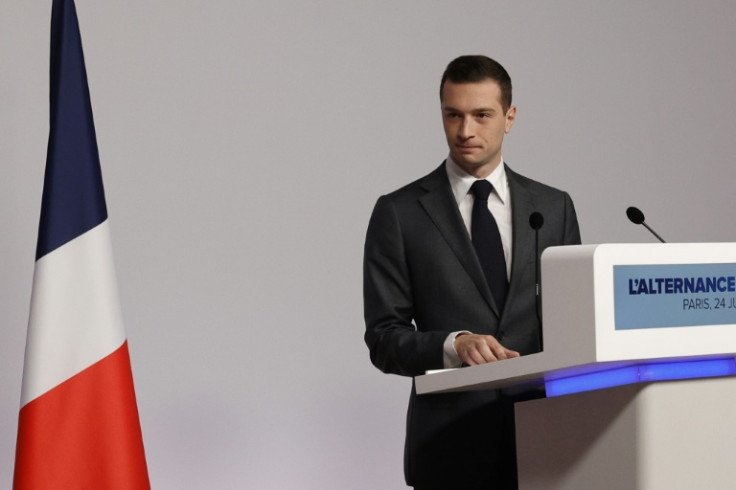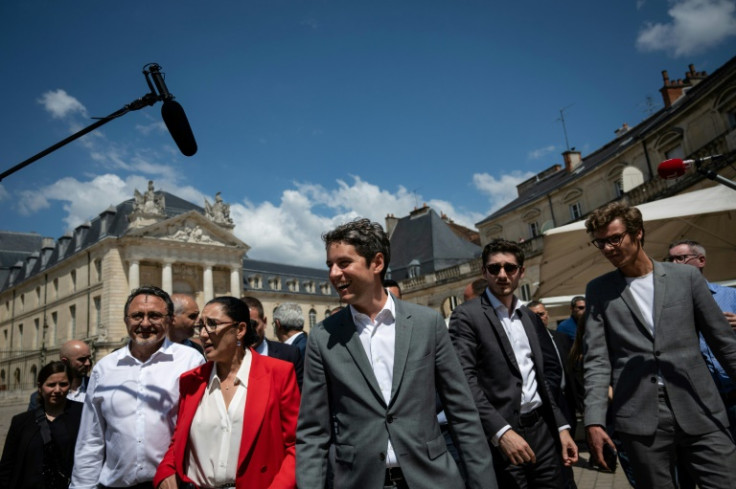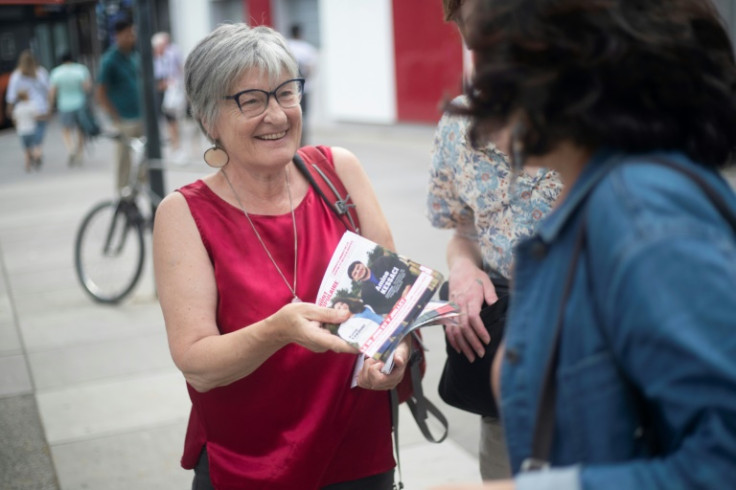Macron Warns Far-right, Hard-left Policies Could Lead To 'Civil War'

President Emmanuel Macron on Monday warned that the policies of his far-right and hard-left opponents could lead to "civil war", as France prepared for its most divisive election in decades.
French politics were plunged into turmoil by Macron calling snap legislative elections after his centrist party was trounced by the far-right National Rally (RN) in a European vote earlier this month.
Weekend polls suggested the RN would win 35-36 percent in the first round on Sunday, ahead of a left-wing alliance on 27-29.5 percent and Macron's centrists in third on 19.5-22 percent.
A second round of voting will follow on July 7 in constituencies where no candidate takes more than 50 percent in the first round.
Speaking on the podcast "Generation Do It Yourself", Macron, 46, denounced both the RN as well as the hard-left France Unbowed party.
He said the far-right "divides and pushes towards civil war", while the hard-left France Unbowed party, which is part of the New Popular Front alliance, proposes "a form of communitarianism", adding that "civil war follows on from that, too".
Earlier Monday, French far-right leader Jordan Bardella said his RN party was ready to govern as he pledged to curb immigration and tackle cost-of-living issues.
"In three words: we are ready," Bardella, the RN's 28-year-old president told a news conference as he unveiled his party's programme.
Bardella, credited with helping the RN clean up its extremist image, has urged voters to give the eurosceptic party an outright majority to allow it to implement its anti-immigration, law-and-order programme.
"Seven long years of Macronism has weakened the country," he said, vowing to boost purchasing power, "restore order" and change the law to make it easier to deport foreigners convicted of crimes.
He reiterated plans to tighten borders and make it harder for children born in France to foreign parents to gain citizenship.
Bardella added that the RN would focus on "realistic" measures to curb inflation, primarily by cutting energy taxes.
He also promised a disciplinary "big bang" in schools, including a ban on mobile phones and trialling the introduction of school uniforms, a proposal previously put forward by Macron.
Prime Minister Gabriel Attal of Macron's Renaissance party poured scorn on the RN's economic programme, telling Europe 1 radio the country was "headed straight for disaster" in the event of an RN victory.
On Tuesday, Attal will go head-to-head with Bardella in a TV debate.
On foreign policy, Bardella said the RN opposed sending French troops and long-range missiles to Ukraine -- as mooted by Macron -- but would continue to provide logistical and material support.
He added that his party, which had close ties to Russia before its invasion of Ukraine, would be "extremely vigilant" in the face of Moscow's attempts to interfere in French affairs.
Macron insisted that France would continue to support Ukraine over the long term as he met with NATO chief Jens Stoltenberg.
"We will continue to mobilise to respond to Ukraine's immediate needs," he said alongside Stoltenberg at the Elysee Palace.
The election is shaping up as a showdown between the RN and the leftist New Popular Front, which is dominated by the hard-left France Unbowed.
Bardella claimed the RN, which mainstream parties have in the past united to block, was now the "patriotic and republican" choice faced with what he alleged was the anti-Semitism of Melenchon's party.
France Unbowed, which opposes Israel's war in Gaza and refused to label the October 7 Hamas attacks as "terrorism", denies the charges of anti-Semitism.
In calling an election in just three weeks Macron hoped to trip up his opponents and catch them unprepared.
But analysts have warned the move could backfire if the deeply unpopular president is forced to share power with a prime minister from an opposing party.
RN powerhouse Marine Le Pen, who is bidding to succeed Macron as president, has called on him to step aside if he loses control of parliament.
Macron has insisted he will not resign before the end of his second term in 2027 but has vowed to heed voters' concerns.
Speaking on Monday, Macron once again defended his choice to call snap elections.
"It's very hard. I'm aware of it, and a lot of people are angry with me," he said on the podcast.
"But I did it because there is nothing greater and fairer in a democracy than trust in the people."



© Copyright AFP 2025. All rights reserved.





















